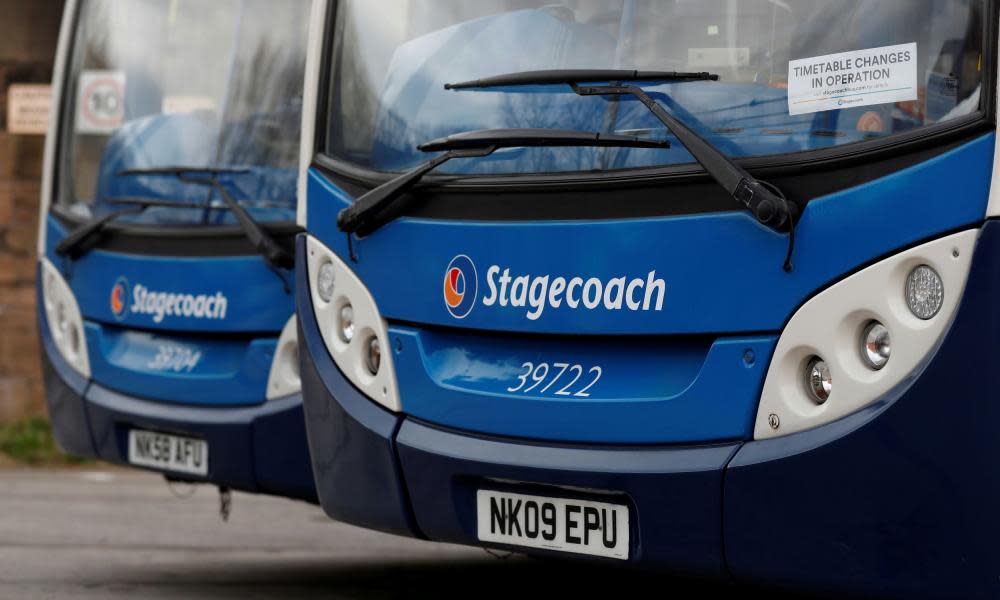Bus network in Britain facing strikes over drivers’ low pay

Services on the UK bus network, already in “crisis” because of a shortage of thousands of drivers, are set to get worse as unions plan a series of strikes.
The RMT is going ahead on Monday with a walk-out of bus workers at Stagecoach Southwest, and Unite is planning a strike for the first week of November in many of Stagecoach’s other franchises.
The action includes staff at Stagecoach’s north-east services, which on Thursday voted overwhelming to back strike action, as well as the company’s bus services in Scotland, Wales, north Derbyshire and South Yorkshire, and Kent.
Other bus companies, including Arriva North West, also face possible strike action.
The troubled bus network is reeling from an estimated shortage of more than 4,000 drivers. And unions say vacancy rates will increase as drivers are lured into the driver-hit haulage industry, where they can double their wages.
Everyday driver shortages are cited by operating companies as the reason for the announced cancellation of hundreds of services. The charity Bus Users said it had never had so many complaints from passengers about buses not running.
Dan Norris, the West of England metro mayor, said bus services were in crisis. He was in discussion with other mayors about lobbying the government for help.
Unions say drivers’ pay, which in many areas is less than £10 an hour, must improve to attract more recruits and stop existing staff leaving.
“That’s why key staff are leaving in droves – threatening lifeline transport service,” said Mick Lynch, the RMT’s general secretary, as he announced Monday’s strike at Stagecoach Southwest.
In Wales, where Stagecoach drivers are only paid £9.25 an hour, Unite is planning to strike after the company rejected a claim for £10.50 an hour as “unaffordable”.
Norris said: “The government has written to HGV drivers, which include many bus drivers, offering lucrative careers in haulage, which hasn’t helped. We need government action to solve the bus driver crisis – not sticking plaster solutions.”
Bobby Morton, Unite’s national officer for passenger transport, said: “I’ve been in the industry for almost 40 years and I’ve never known it this bad.”
The CPT (Confederation of Passenger Transport UK), a trade body that represents bus operators, insisted that the industry was working hard to tackle its estimated shortfall of more than 4,000 drivers. Its spokesperson, Tom Bartošák-Harlow, insisted that the shortage was not about pay.
A Stagecoach spokesperson said it was continuing to operate 97% of services and had attracted 6,000 applicants for new bus driver roles. “Like other companies in the transport and logistics sector, a small proportion of our services have been affected by factors out of our control, including the pandemic, Brexit, and the backlog at the DVLA in processing licences.”
He added: “We continue to have good relationships with our trade unions at local level and are going through the regular process of negotiations where pay reviews are due. We have pay agreements and union-recommended offers in place covering the majority of our bus depots in England, Scotland and Wales, and we are working constructively to conclude agreements at the other remaining locations.”

 Yahoo News
Yahoo News 
